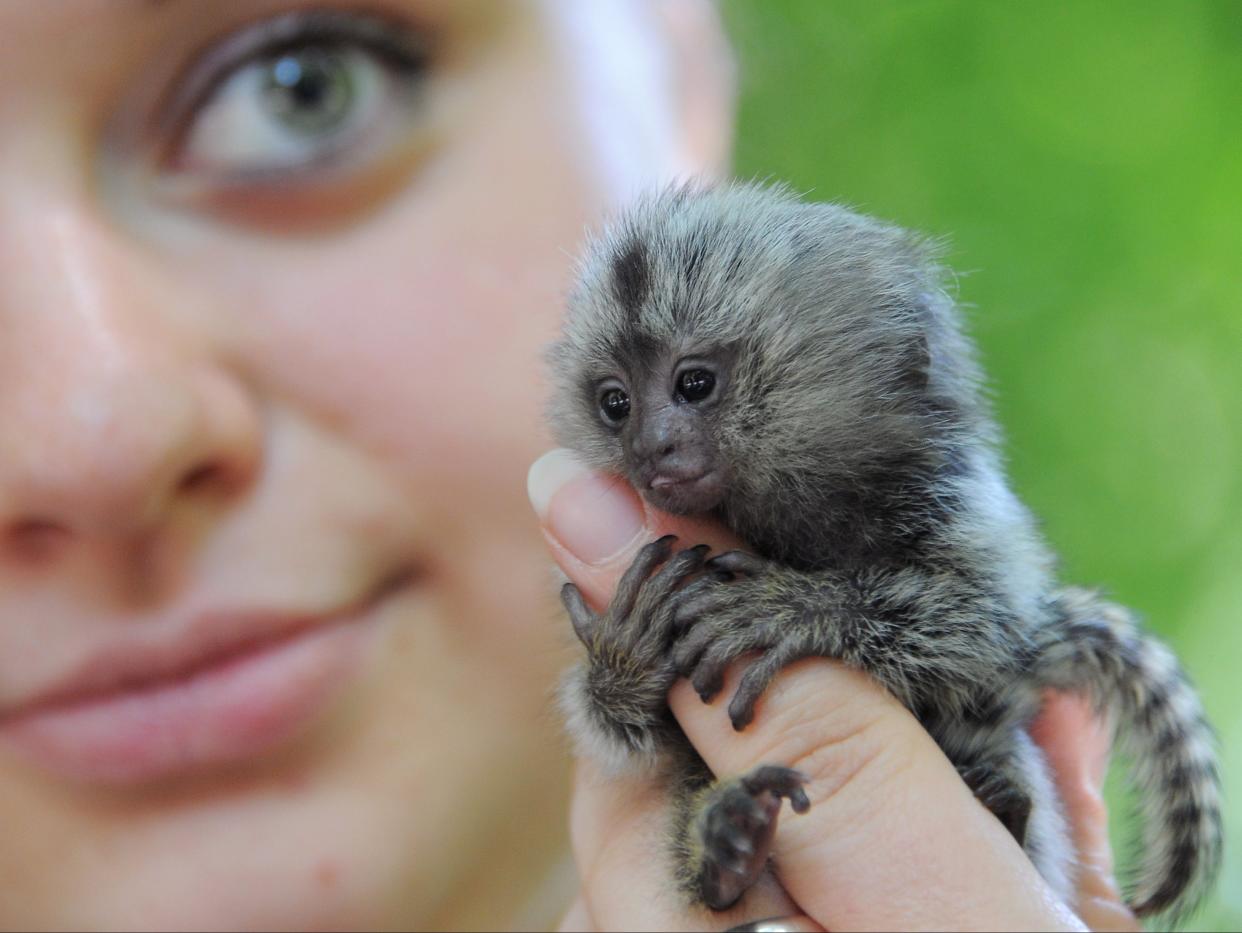Keeping primates as pets to be banned after social media-driven trend leaves monkeys ‘living in misery’

Marmosets are one of the most popular species bought as pets in the UK
(DPA/AFP via Getty Images)Keeping primates as pets is set to be banned in England to prevent thousands of animals “suffering and living in misery” in people’s homes.
It follows a surge in numbers of monkeys needing to be rescued, as social media has driven a rising trend for buying the animals that experts say should remain in the wild.
An estimated 5,000 primates are kept as pets in the UK, many of them kept alone in bird cages in living rooms, according to the RSPCA.
Just weeks ago, an investigation found marmosets being sold in small cages in a Manchester pet shop, and they are easily bought online.
Capuchins, lemurs and squirrel monkeys are also popular among buyers who want unusual pets.
A sanctuary for abused and neglected primates said being kept as pets left them “malnourished, with rickets, mobility problems and psychologically damaged”.
Animal-welfare organisations, which have lobbied for a ban for years, say that as well as causing immense suffering, the trade threatens wild populations and risks spreading diseases to owners.
Importing “exotic” animals has been linked to the risk of the spread of zoonotic diseases such as coronavirus.
The government is launching an eight-week public consultation on a proposed ban, which was a Tory election manifesto pledge.
Animal welfare minister Lord Goldsmith said: “Primates are hugely intelligent and socially complex animals. When they are confined in tiny cages, often alone and with little stimulation, their lives are a misery.
“It’s important we take action to prevent the suffering caused to them when they are kept as pets.”
An investigation in October by the Freedom for Animals charity found six marmosets in cages just 3sq m in a pet shop, and two babies had already been sold.
Under the new plan, it will be an offence to keep a primate as a pet in England, and non-zoo owners will need to obtain a special private primate-keeper licence.
Ros Clubb, senior scientific manager at the RSPCA, said it was impossible for the needs of primates to be met in a domestic environment. “They are intelligent, sentient and highly social animals with complex needs.
“Just like humans, primates can become depressed without adequate stimulation. They need a spacious and enriched environment that challenges their intelligent brains and allows for them to behave like primates should, yet we are still finding them kept alone in indoor bird cages in living rooms,” she said.
Monkey World, a sanctuary for abused and neglected primates in Dorset, has taken 78 primates in the past decade, and has a waiting list of at least 100 more.
Director Alison Cronin said: “We have experienced a dramatic increase in the numbers recently.
“Current laws are not protecting the monkeys from abuse or neglect, as they arrive at the park malnourished, with rickets, mobility problems and psychologically damaged as a result of living in solitary confinement, inside people’s houses.
“We are asking people to take part in this consultation to signal that this trade is unacceptable and the current legislation is not working.”
A spokeswoman said rising numbers of people had bought primates, often from unscrupulous dealers, because social media, including Instagram and TikTok, made it fashionable to have them as pets, with celebrities posting photos of their wild animals.
“People think it’s acceptable because it’s not illegal. Social media companies don’t see why they should police this when the government hasn’t made it illegal.”
Owners who buy monkeys as babies don’t realise they will become more aggressive when they mature or fall ill, she said.
Experts say primates need open spaces, varied diets, social contact and plenty of warmth and light.
Mark Jones, of charity the Born Free Foundation, whose report six years ago called for a ban, said: “These highly intelligent and socially complex animals clearly don’t belong in people’s homes. As well as causing immense animal suffering, the trade also poses a threat to wild populations, and places the public at risk of injury or illness.”
Read More
Primates imported for lab experiments 'triple in a year to 6,752'
Scores of primates face 'impending extinction', 31 scientists warn
Monkey business: Rising interest in exotic pets sees primate ownership

